How nurseries show community leadership and create happier local neighbourhoods
by Mona Sakr Nurseries are at the heart of enabling children to positively contribute to the communities they live in. Through their work with children
Since the introduction of the EYFS framework in 2008 there has been a huge emphasis upon encouraging parents to become engaged in their children’s learning. Research has recognised that parents are children’s first and most enduring educators and that improving the home learning environment is an important role of the practitioner.
In 2004 Kathy Sylva and Iram Siraj-Blatchford embarked upon the EPPE research and in their findings, they highlighted the importance of the home-learning environment.
An environment where parents:
So taking parents out on visits will allow practitioners to support parents improve their interactions with their children as practitioners will be able to model speaking and listening and the introduction of new vocabulary, provide parents with simple tasks and games to complete during the visits, and reiterate the importance of taking children into the local and wider community.
Further international research supporting the need for parental engagement has found the following:
The new Early Years Inspection framework (2019:19) reiterates the importance of parental engagement and what inspectors will be looking for during an inspection visit.
Wherever possible, the inspector must find out the views of parents during the inspection, including those of any parents who ask to speak to them. This will contribute to judgements about how well the provision works in partnership with parents to support children’s learning and development, and the promotion of their well-being.
by Mona Sakr Nurseries are at the heart of enabling children to positively contribute to the communities they live in. Through their work with children
The Families’ Access to Nature Project was undertaken by the Froebel Trust and Early Education between October 2021 and January 2022. Children, their parents, and
ICT – what’s it all about? ICT is information and communications technology. The term simply means all the technology around us, things like mobile phones,
Toddlers are very busy people. They are keen to learn about the world around them and ready to be fascinated by things that seem ordinary
Children’s curiosity about the world around them is apparent from the day they are born. Babies quickly use all their senses to explore themselves and
Reading is fun. It’s also a key skill that helps us to learn and to live our lives – so starting to read is an
What? Why? When? Where? What for? – and Why? yet again. Sometimes children’s questions just keep on coming. It can be wearing, especially if you
It’s true, maths really is everywhere, and learning about it doesn’t happen just at school or nursery. Young children have lots of important mathematical experiences
What is mark making? Mark making is the term used to describe the marks that children in their early years make on paper and is
The role of music in the early years Everyone knows how much young children love to sing and dance, but all too often music is
Children learn how to behave All children are individuals, because they are born with their own character. This is why even children within the same
Early childhood seems like a time of constant change to adults. Just as you’ve got used to a predictable daytime nap, your child decides that
Why go outside? Big movers Have you ever been in an open space with young children? The first thing they want to do is to
Young children are artists. They use all sorts of materials to show what they have noticed about the world. They might draw the rain falling
Taking care of a baby is tiring work, with a lot of feeding, nappies and broken nights. When you are exhausted, it can be harder
This page brings together useful resources for supporting families with home-learning while settings and schools are closed during COVID-19 restrictions. See also: Twelve links for
Here are twelve links with free ideas to support play and learning at home, suitable for early years, nursery, reception and school aged children in
It is important to include families in helping to shape your decisions in relation to developments you want to make. Families know their circumstances best
The Exploring the Wider World Project was funded by the Stoke-on-Trent Opportunity Area and was delivered by Early Education between April 2019 and March 2020.
The direction of the project has been dictated by three key factors: a deep understanding of how young children learn best, developing sustainability for practice,
Rethinking our consideration of what an outing or a visit may be has been central to the project. Children need to build up their knowledge
Using the local environment enables children to develop a sense of belonging to the local community. It helps them to develop a sense of place
An early task for the Exploring the Wider World project was to identify the barriers to taking children out and about beyond the setting. Only
Risk is a natural part of our existence, as we look to explore and make sense of the world around us. What is key is
This page brings together all the key project elements of thinking through a trip or a visit in one handy place, with downloadable resources for
Meaningful learning opportunities relating to understanding the world rely on rich and stimulating resources. Consider what you have Rich and well thought out resources make
A reflection based upon rich and varied experiences of taking young children out into the Wider World by Kathryn Solly, Early Education Associate. Beginnings There
It is important to remember that the world of a 2-year-old is very different to ours. They are hugely fascinated by the things that we
By the time children get to be 3 years of age, they are, generally, better at walking and so can walk for longer periods of
Most 4-year-olds can walk faster and further than their younger counterparts. This means that they can venture further afield than the three year olds in
Walking is a great way to stay active for people for all ages. Particularly for children, walking: is fun and interesting – you get to
Using public transport can be really exciting for young children, especially for those who spend lots of time in cars, being ferried from place to
Social media is a powerful tool for sharing examples of good practice and celebrating achievements – but there potential pitfalls, particularly relating to consent. We
This article by Early Education Associate Anni McTavish explores the term “cultural capital”, and what it might mean for early years practitioners and their settings.
Transition is part of the maturation process. Most children and their families find moving from one stage to the next seamless. Transitions need careful planning and will
We know young children appear to be starting settings with less developed language than in previous years due to a range of reasons. Understanding the
The Duchess of Cambridge launched The Royal Foundation Centre for Early Childhood on 18th June 2021 with a substantial report Big change starts small which identifies six
Entering the unknown It was extremely hard and emotional to say goodbye to the children and parents in my Reception class at the end of
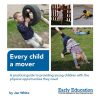



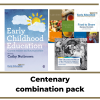
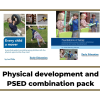
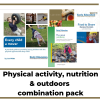
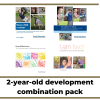
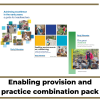
Early Education
2 Victoria Square
St Albans
AL1 3TF
T: 01727 884925
E: office@early-education.org.uk